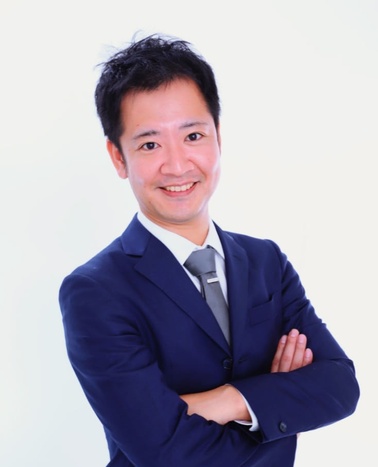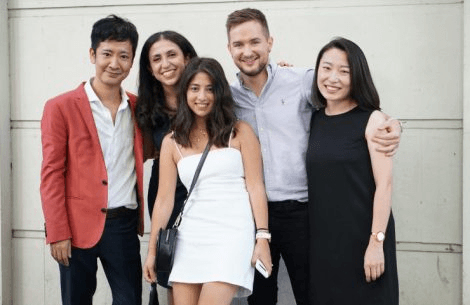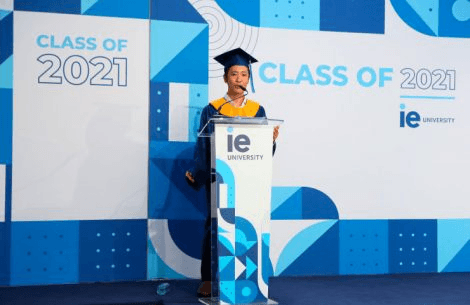
Mitsuya Shimura
Mitsuya is an entrepreneur from Japan. His grandfather and father were also entrepreneurs, which inspired him to become one as well. In 2012, he began his career at Toray, a major Japanese materials manufacturer, where he spent eight years in sales, marketing, and new business development. He then completed his MBA at IE Business School in 2021. During his IMBA program at IE, he began fundraising for his search fund. In 2022, he launched M-Capital GK, Japan's second traditional search fund, with the support of 18 investors from 6 countries. His mission is to acquire one excellent business that is in a growing industry and has a competitive advantage and recurring revenue. He is then to become the new owner of the acquired company, accomplish the growth and development of the company over the long term, and create new value.
"If you have a big goal, make it known to everyone while you are in MBA. Someone around you will support you."
Q&A WITH MITSUYA
Define your experience in IE in one word.
Chaos (But I love it)
What were some of the main challenges that you encountered on your way? How did your master program and IE help you through these challenges?

How did your experience at IE prepare you for your professional career? In what ways do you think program has changed your life professionally and personally?
IE awakened the entrepreneurial spirit that had been lurking inside me. In the IMBA program, we went through a number of iterations of actually developing our business idea and pitching it to investors through the Startup Lab. We developed a platform called “Memovitas” that matches dementia patients with paid caregivers. Winning Cloud Favourite Award for this idea with my team mates was a great memory for me. Also, Each of my classmates had their own business ideas based on their own problems, and through conversations with them, I could not stop thinking about what it is that I want to accomplish in my life. In the conservative society that is Japan, it is quite difficult to shift from the employee side to the entrepreneur side, but thanks to the entrepreneurial mindset that IMBA program provided with me, the shift was relatively smooth for me.
What is your favorite memory from your time at IE?

Graduation Speech at the Graduation Ceremony. Fortunately, I was voted in by my peers in the same section and entrusted with the responsibility of giving the graduation speech. When I was first selected as a speechmaker, I was surprised and confused, but decided to take it on because I love to achieve results under great pressure. I remember practicing alone over and over in an empty classroom, determined to make the best of things, carrying the thoughts of my friends in the same section. The draft of this speech was like a love letter from me to my friends in the same section. I remember feeling like a rock star as the adrenaline pumped through me while I was on stage giving my speech. After the speech was over, I was very happy to receive positive feedback from many of my fellow students. Of course, traveling with my classmates to different places in the world and going crazy on the beach in Ibiza were valuable experiences, but the graduation speech is the most memorable for me.
You were recently featured in Nikkei, Japan’s largest financial newspaper. Tell us about your experience being featured in such a prestigious paper.
First of all, M-Capital is not the project solely by myself, but with 18 investors from 6 different countries. We have been preparing for almost a year without any attention from anyone, so I was happy to be featured in Nikkei this time and to have attracted a bit of attention from the public, and I was glad that investors were pleased. And in Japan, where search funds are still in their infancy, I hope that the introduction of search fund activities like this time will help increase the number of young entrepreneurs who want to pursue this career and improve awareness among business owners who are facing business succession issues.
You worked for 8 years in a large Japanese company, then you decided to start your own business, M-Capital. Tell us how you managed to successfully achieve this career transition.
In my opinion, the key to making big career transitions is to find the right balance between supply and demand in the market. In Japan, business succession is one of the most serious social issues and there is a strong affinity between the business succession problem and the search fund model as a solution. However, when I was fundraising in 2021, there was no one in Japan who wanted to start a search fund by collecting funds from overseas investors.
As you point out, my previous career was as a salesperson for a materials manufacturer, which is not consistent with my current career. But This gap between supply and demand made my career transition possible.
What is the key element that you are looking for and that will convince you to invest in a company?
We are looking for a B2B service company in a growing industry that does not require a large capital investment and is expected to generate recurring revenue. Personally, I also value the intuition and excitement of being able to fall in love with the company. I think the reason for this love may be the owner’s humanity, the novelty of the business, or the contribution it makes to the world. While the quantitative indicators mentioned above are important, I would like to emphasize these qualitative points as well.
If you had a billboard you could display to the entire world, what would you put on it? (1-10 words)
What doesn’t kill you makes you stronger.